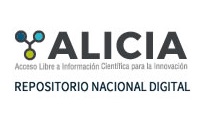trabajoBicentennial of the Independence: Theories, paradigms and educational work in the government of Simón Bolívar (1822-1827)
DOI:
https://doi.org/10.31381/pluriversidad.v0i6.3631Keywords:
Bolívar, Rodríguez, Lancasterian model, popular education, education for workAbstract
This paper focuses on the educational work of the Liberator Simón Bolívar, which necessarily goes along with the study of his mentor Simón Rodríguez, who was his guide during his formation. Rodríguez was an innovative and rebellious teacher of the colonial decline and in the advent of independence, a master of the republic. In the organization of the republic he developed his popular education project to benefit the great national majorities marginalized during the three hundred years of colonial power. He reclaimed the right to women’s education, education for work, practice of values, professionalization of the teacher. He criticized the Lancasterian model. The Liberator developed a vast education policy, first under the influence of the Lancasterian model and after the arrival of his mentor Simón Rodríguez, with the popular education model. His most relevant representations are the creation of the University of Trujillo, el Colegio de Santa Rosa de Ocopa, el Colegio de Artes y Ciencias y de Educandas del Cusco, el de Ciencias y Artes de Puno, Gineceo de Lima, the creation of normal schools, among others.





